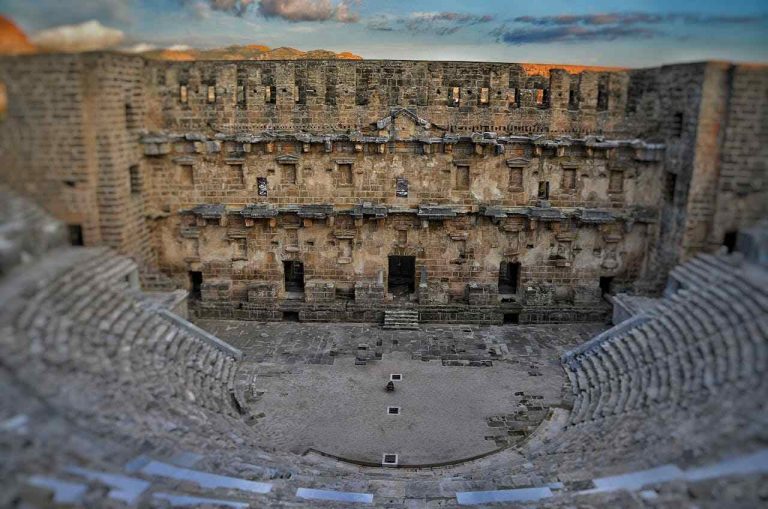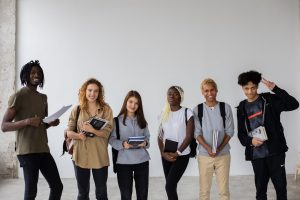Welcome to the exciting world of IB Theatre Studies! You’ve come to the right place if you’re working on your Internal Assessment. As an experienced IB writer, I’m here to help you choose the most engaging Theatre Studies IA topics.
How to Choose Your Theatre Studies IA Topic?
Firstly, choosing the right topic is crucial. According to general IB criteria, your topic should spark interest and have ample resources available. Additionally, it must be relevant to the syllabus. Below, I will give you some tips to consider when selecting Theatre Studies IA topics for the SL or HL level.
Inspiration from Theatre History
Historically, theatre has been a mirror to society. Therefore, looking back at significant movements or seminal plays can provide rich fodder for your IA. For instance, how Greek tragedies influenced modern dramaturgy or the evolution of set design in the 20th century. These historical angles can provide a robust framework for your assessment.
Modern Theatre as a Source
Conversely, modern theatre presents a goldmine of topics related to contemporary issues. From my experience, researching topics such as the impact of digital technology on theatre production or the representation of minorities in recent plays can be incredibly rewarding. These subjects are topical and encourage a critical examination of theatre’s role in contemporary society.
Analyzing a Playwright’s Work
One practical approach is to focus on a specific playwright. For example, you could analyze the thematic evolution in Tennessee Williams’s works or the influence of Bertolt Brecht’s political ideologies on his dramaturgy. This approach allows for a concentrated study that is manageable yet intellectually stimulating.
Theatre and Society
Another compelling topic is the relationship between theatre and societal changes. For example, how did American theatre address racial discrimination during the Civil Rights Movement? Such topics enrich your understanding of theatre and its impact on social issues.
The Role of Directorial Vision
In my experience, examining how different directors interpret the same script can reveal much about directorial vision and its effect on performance outcomes. This topic encourages you to compare and contrast productions, providing a clear insight into the artistic choices made by directors.
Developing Theatre IA Topics into Research Questions
Transitioning from a broad topic to a specific research question is critical. Begin by narrowing your focus: if you’re interested in modern American theatre, you might refine it to “How has American theatre portrayed climate change in the 21st century?” This specificity will guide your research and help maintain your focus. To give you a clearer idea, here are some sample research questions:
- “What is the role of improvisation in developing characters in contemporary theatre?”
- “How does the use of multimedia influence audience engagement in modern plays?”
Thorough research is the backbone of a successful IA. Use academic journals, books, interviews, and case studies. Moreover, watching plays and engaging with practitioners can provide invaluable firsthand insights that enrich your work.
Finally, be mindful of common pitfalls. A frequent mistake is choosing a topic too broad to manage within the word limit or picking one with insufficient sources. From my experience, focusing on a specific aspect allows for a deeper and more analytical discussion.

Theatre Studies IA Topics and Research Questions
These Theatre Studies IA topics and research questions encourage in-depth analysis and engagement with a wide range of theatrical issues and practices.
Standard Level (SL) Theatre Studies IA Topics
The study at SL tends to be more general. Students are introduced to a range of styles and theories but are not expected to engage with these at an overly complex level:
- The Influence of Traditional Japanese Noh Theatre on Western Dramatic Techniques. How have traditional Japanese Noh theatre elements been integrated into Western drama practices?
- The Use of Symbolism in Arthur Miller’s Plays. What symbols does Arthur Miller use in “The Crucible” to convey themes of power and guilt?
- Impact of Stage Technology on Modern Theatre Productions. How has modern stage technology changed the way audiences perceive live theatre performances?
- The Role of Music in Shakespearean Productions. In what ways does music influence the mood and setting in Shakespeare’s “A Midsummer Night’s Dream”?
- Contemporary Adaptations of Greek Tragedies. How do contemporary “Oedipus Rex” adaptations address modern audience sensibilities and values?
- The Portrayal of Historical Events in Plays. How accurately do modern plays depict the events of the Tudor period in English history?
- Researching Gender Roles Through Modern Playwriting. How do plays from the last decade challenge traditional gender roles through their characters?
- The Evolution of Improvisational Theatre in the 20th Century. What key changes in improvisational theatre practices occurred during the 20th century?
- The Effect of Minimalist Sets on Audience Engagement. How do minimalist set designs affect audience engagement and interpretation of a play?
- Puppetry in Modern Theatrical Productions. What role does puppetry play in enhancing narrative storytelling in contemporary theatre?
- The Evolution of Comedic Styles in Theatre. How have comedic styles in theatre evolved from classical Greek plays to modern sitcoms?
- The Role of Costumes in Character Development. How do costumes contribute to portraying character identity in Shakespeare’s plays?
- The Impact of Audience Interaction in Immersive Theatre. How does audience interaction impact the narrative and outcome in immersive theatre performances?
- The Influence of Political Changes on Theatre Productions. How did the fall of the Berlin Wall influence theatre productions in Germany in the early 1990s?
- The Representation of Folklore in National Theatres. How is folklore used to reinforce national identity in Norwegian theatre?
- The Use of Lighting as a Narrative Tool in Modern Theatre. In what ways is lighting used to advance the narrative in contemporary theatre?
- Revival of Silent Plays in the 21st Century. What factors have contributed to the revival of silent plays in modern theatre, and how do contemporary audiences receive them?
- The Portrayal of Mental Health in 20th-Century Drama. How did 20th-century American plays portray mental health issues, and how did these portrayals affect societal attitudes?
- The Influence of Technology on Set Design. How has advanced technology transformed set design in the last decade?
- Cross-cultural Adaptations of Classic Plays. How are classic Western plays adapted for Eastern audiences, and what changes are made to suit cultural contexts?
- Revivals of Ancient Plays in Modern Theatre. How are ancient Greek and Roman theatre plays adapted to appeal to modern audiences?
- The Role of Masks in Traditional and Contemporary Theatre. How have masks been used historically in theatre, and what is their significance in modern performances?
- The Impact of Monologues in Character Development. How do monologues contribute to character development in solo theatre performances?
- Children’s Theatre: Educational and Entertaining. What are the key elements that make children’s theatre both educational and entertaining?
- Community Theatre’s Influence on Local Cultures. How does community theatre help strengthen community bonds and enhance local cultural identity?
- Improvisation Techniques in Theatre Education. What are the benefits of teaching improvisation techniques in high school theatre programs?
- Environmental Themes in Contemporary Plays. How are environmental issues portrayed in contemporary theatre, and what impact do these portrayals have on audiences?
- The Role of Directors in Stage Productions. What is the role of a director in transforming a script into a stage production?
- The Evolution of Theatrical Costumes. How have theatrical costumes evolved over the centuries, and what influences these changes?
- The Influence of Modern Technology on Playwriting. How has modern technology influenced the techniques of playwriting in the 21st century?
Remember that SL study tends to be more general. Students are introduced to various styles and theories but are not expected to engage with them at an overly complex level.
Buy IB IA with Full Confidentiality!
Grab your IB IA with full privacy guaranteed.
Our no-leak policy keeps your details 100% secure.

Higher Level (HL) Theatre Studies IA Topics
HL students must demonstrate a more detailed understanding and a critical appreciation of the texts and topics studied. They dig into more intricate analyses of different genres and styles:
- Comparative Analysis of Directorial Techniques in Post-war American and British Theatre. How do directorial techniques in post-war American theatre differ from those in British theatre, and what cultural factors influence these differences?
- The Representation of Mental Illness in European Avant-Garde Theatre. How is mental illness portrayed in European avant-garde theatre, and what impact does this have on societal perceptions?
- The Influence of Political Movements on German Theatre in the 20th Century. How have major political movements shaped the thematic content of German theatre throughout the 20th century?
- Cross-cultural Influences in Contemporary Theatre Productions. How have African theatrical traditions influenced contemporary European theatre productions?
- The Role of Theatre in Addressing Climate Change. How is theatre being used to raise awareness and provoke action on climate change?
- The Impact of Digital Media on Classical Theatre Performance. In what ways has the integration of digital media into classical theatre productions influenced audience experiences?
- Feminist Perspectives in the Works of Modern Female Playwrights. How do contemporary female playwrights incorporate feminist themes into their narratives?
- The Revival of Vaudeville Techniques in Modern Performance Art. What vaudeville techniques are being revived in modern performance art, and to what effect?
- Existential Themes in the Plays of Samuel Beckett. What existential themes predominate in Samuel Beckett’s plays, and how are they presented to the audience?
- The Integration of Virtual Reality in Live Theatre Performances. How is virtual reality technology used to enhance storytelling in live theatre performances?
- Deconstructing Postmodern Theatre. What are the defining characteristics of postmodern theatre, and how do they challenge traditional theatrical conventions?
- The Role of Theatre in Societal Healing Post-conflict. How has theatre been used for societal healing and reconciliation in post-conflict Rwanda?
- Innovations in Puppetry and Their Theatrical Impact. What recent innovations in puppetry have had the most significant impact on theatrical storytelling?
- The Dramaturgical Analysis of Non-Western Theatre Forms. How do traditional Indian theatre forms like Kathakali use dramaturgy to convey complex narratives?
- The Intersection of Dance and Theatre in Performance Art. How does integrating dance into theatrical performances enhance the emotional expression in contemporary performance art?
- Theatre as a Form of Political Protest. How has theatre been used as a political protest in Venezuela under the Maduro regime?
- The Evolution of Scenic Design in Opera. How has scenic design in opera evolved since the 19th century, and what technological advancements have influenced this evolution?
- Adaptations of Literary Works Into Theatrical Scripts. What are the challenges and creative strategies involved in adapting modernist novels for the theatre?
- The Role of Theatre in the Digital Age. What challenges does theatre face in the digital age, and how are theatre practitioners responding to these challenges?
- Analyzing Directorial Reinterpretations of a Classic Play. How have different directors reinterpreted Shakespeare’s “Macbeth” to reflect contemporary themes?
- Integration of Virtual Reality in Live Performances. How is virtual reality integrated into live theatre performances, and what new dimensions does it bring to the theatrical experience?
- Gender Politics in Modern Theatre Productions. How do modern theatre productions address gender politics, and how do they impact societal perceptions of gender?
- The Absurdist Theatre’s Philosophical Underpinnings. What are the key philosophical themes in absurdist theatre, and how are they presented on stage?
- Multimedia Elements in Avant-Garde Theatre. How are multimedia elements used in avant-garde theatre to enhance the narrative?
- Cross-Cultural Exchange in Global Theatre Practices. How do global theatre practices incorporate cross-cultural exchange to enrich performance and storytelling?
- Historical Accuracy vs. Artistic License in Period Plays. What is the balance between historical accuracy and artistic license in plays set in specific historical periods?
- The Impact of Festival Theatre on Cultural Tourism. How does festival theatre contribute to cultural tourism, and what are its economic impacts?
- The Role of Criticism in Theatre Evolution. How has criticism influenced the evolution of theatre practices over time?
- Theatrical Representations of Mental Health Issues. How are mental health issues portrayed in contemporary theatre, and what discussions do they provoke among audiences?
- Adaptations of Literary Works Into Theatrical Scripts. What are the challenges and creative strategies involved in adapting modernist novels for the theatre?
While SL and HL Theatre Studies in the IB curriculum aim to cultivate students’ appreciation of theatre as a dynamic art form, the HL course demands more complex analytical skills.
Final Thoughts
In conclusion, choosing the right IA topic in Theatre Studies can be a formidable yet fascinating challenge. By following these guidelines and truly engaging with your chosen subject, you will fulfill the requirements of the IB and enrich your understanding and appreciation of theatre. Also, feel free to contact our authors at Buy IB IA Service if you need further assistance.

Nick Radlinsky
Nick Radlinsky is a passionate educator, marketer, and management expert with over 15 years of experience in the education sector. After graduating from business school in 2016, Nick embarked on a journey to earn his PhD, fueled by his dedication to making education better for students everywhere. His extensive experience, beginning in 2008, has made him a trusted authority in the field.
Nick's groundbreaking article, published in Routledge's "Entrepreneurship in Central and Eastern Europe: Development through Internationalization," showcases his keen insights and commitment to improving the educational landscape. Guided by his motto, "Make education better," Nick's mission is to simplify students' lives and promote efficiency in learning. His innovative ideas and leadership have helped transform countless educational experiences, setting him apart as a true pioneer in his field.




